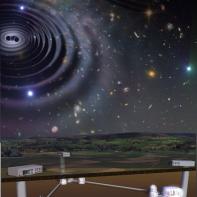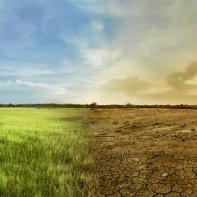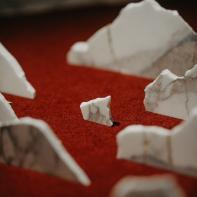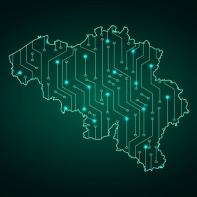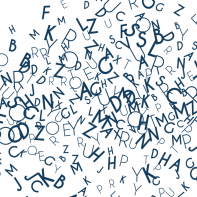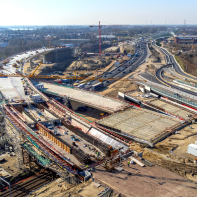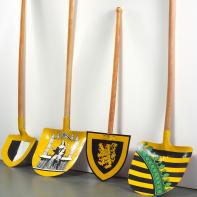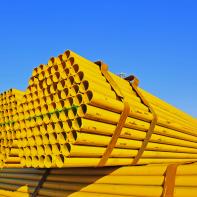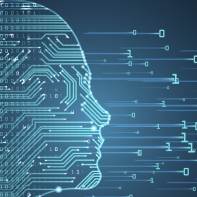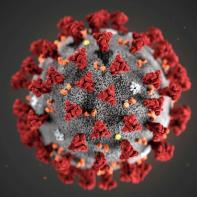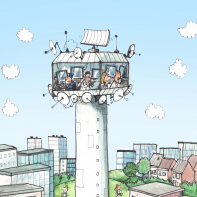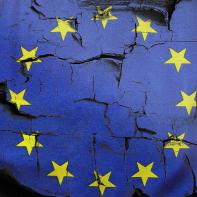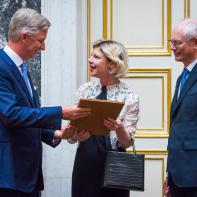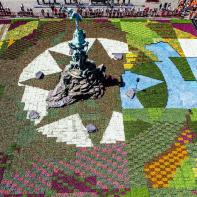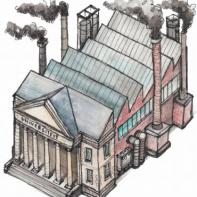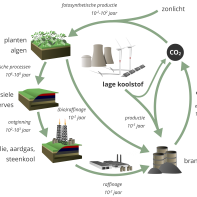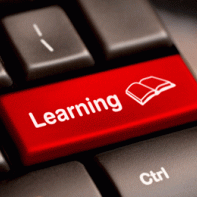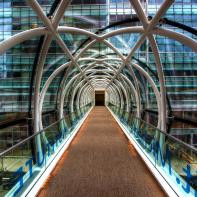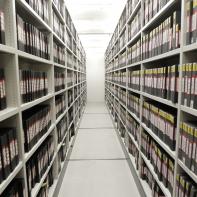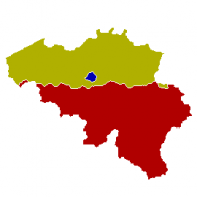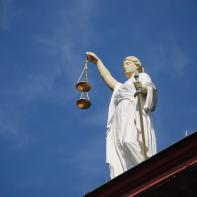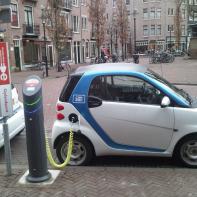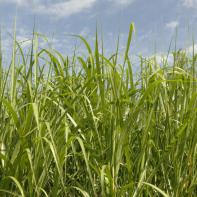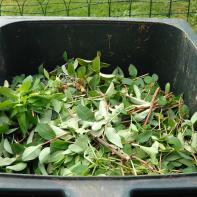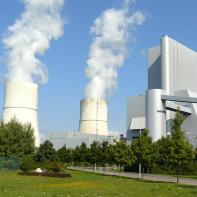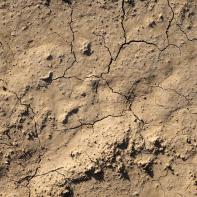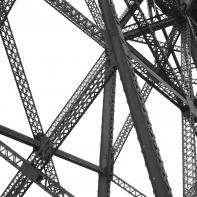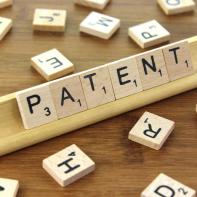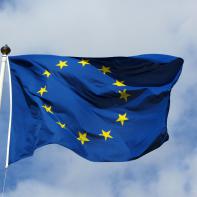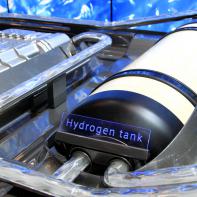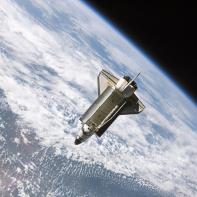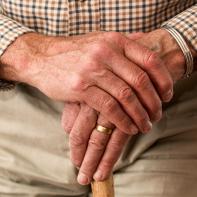Position Papers
The Academy is well-positioned to address current challenges in our society. The publication series Standpunten [Position Papers] wants to feed the public debate with scientifically based information. Thanks to its multidisciplinarity, the Academy can bring these challenges into focus in a timely manner and formulate policy recommendations. Authored by members and working groups within the Academy, often in conjunction with external experts, Standpunten is published at least eight times a year by the Academy.
Position papers that are available in English are marked with an 'EN'.
Wetenschappelijke integriteit is meer dan een set regels — het is de levensader van de wetenschap.
Een klimaatneutraal woningbestand tegen 2050 vereist een geïntegreerde aanpak, met prioriteit voor snelle koolstofreductie, met een ruimer tijdskader voor diepe renovatie.
In dit Standpunt geven we een stand van zaken van het vertrouwen in de wetenschap(per) in Vlaanderen.
In dit Standpunt reflecteren we, na 15 jaar, opnieuw over de relatie tussen Vlaanderen en het HPC-landschap.
Diepgaande inzichten over de huidige praktijk en de mogelijke toekomst van het Vlaamse AI-onderzoek en de bredere samenleving.
Dit Standpunt is een bijdrage vanuit de taalkunde. We gaan na op welke manier de bevolking in Vlaanderen wordt geïnformeerd over klimaatopwarming en klimaatactie.
We kunnen er niet meer om heen. Sociale media zijn alomtegenwoordig en worden gebruikt door miljarden mensen.
De toekomst van de mensheid gaat hand in hand met de rol die aan de geesteswetenschappen wordt toegekend in de maatschappij.
Dit eerste gezamenlijke Standpunt van de twee algemene academies van België, KVAB en ARB, roept op tot een versnelde digitale transformatie in België.
De aanpak van grote maatschappelijke uitdagingen vereist een brede kennisbasis, die enkel kan worden opgebouwd door wetenschapsbeoefening op initiatief van de onderzoeker.
De denkers formuleren positieve acties en aandachtspunten om te komen tot robuuste, reproduceerbare en geloofwaardige kennis.
Het gebruik van Engels in onderzoek en onderwijs is geen of/of-, maar wel een en/en-verhaal.
Bruggen/viaducten in de Lijst Prioritaire Kunstwerken onderworpen aan strikter inspectieregime.
Het terugdringen van broeikasgassen wordt voor de Vlaamse woongebouwensector een enorme uitdaging.
For decades now, the welfare state has failed to reduce poverty in the active population...
Een Canon van Vlaanderen houdt een verschraling in van de historische en maatschappelijke diversiteit.
Hoe kunnen we door te bouwen betekenisvolle plekken tot stand brengen, die mensen aanspreken en verbinden?
Distrust among citizens and the erosion of its fundamental values in a number of member states creates a huge challenge for the European Union in relation to its authority and legitimacy.
Can law continue to play the role of an instrument for bringing about social cohesion?
A multi-disciplinary use of new, sea-based infrastructure is a necessity.
Scientists, technologists and artists are coming together in diverse and innovative ways.
Recommendations for policymakers, in view of optimally promoting and facilitating the transition to a carbonneutral energy system.
On a general framework for the ethical guidance of the applications of digital technology as a basis for technological citizenship.
Presents the state of the art of scientific evidence in the field & explores paths to harmonise EU legislation with recent scientific developments.
After fake news, do we now have to put up with fake science? Do we have a ‘replicability crisis’?
Both in research and education, there needn’t be a contradiction between the focus on interdisciplinarity, and excellence at the level of each discipline.
The Corona crisis is an unseen ordeal for humanity. But thecurrent crisis can also have beneficial effects, if it leads to more humanity.
The number of doctorate holders in Flanders has more than doubled in the last decade, but acancies for highly skilled workers are not being filled...
Recommendations for companies, government and consumers.
LA is a domain with great potential but also many challenges...
The pioneering research carried out by academics is essential for the welfare and well-being of our society.
The issue of mobility is a complex multidimensional problem and requires an urgent approach.
How are international research structures transformational for the practice of science in Europe, in Belgium and in Flanders?
On the creation of Piet Swerts’ composition.
If we want a greater diversity in seed companies and robust varieties to make agriculture more sustainable, we urgently need to incorporate the acquired scientific knowledge on GMO technology into European legislation.
Position paper on the impact of AI in Flanders.
Is Europe our home? What does the future hold for Europe?
Position paper at the occasion of the Francqui Award for Barbara Baert in 2016.
Final report from Thinkers-in-residence Tariq Modood and Frank Bovenkerk.
The current use of the Internet, social media and big data severely affects the privacy of ordinary users.
The role of data science in health care is triple: an increase in patient experience, quality and experience, better public health and a cost reduction.
Belgium does not have the best health care system in the world. This position paper nspires a series of general policy proposals.
The fear that robotisation will influence our society is widespread. But we can respond adequately to the opportunities that emerge from the new technologies.
This positin analyses this degree - not underestimating its importance, but also pointing out potential risks.
Recommendations on how to reach a consistent and sustainable Flemish policy on arts and culture.
Flanders is not prepared for challenges associated with the various aspects of water and climate change...
In the energy system of the 21st century, prosumers will become key players.
The flower carpet realized by Anne-Mie Van Kerckhoven interpreted as a stance regarding its urban and societal context.
Analysis of (unwanted) side-effects of the New Public Management policy applied to universities.
The problem of rising CO2 concentrations in the atmosphere is reduced to its scientific essence in order to find solutions.
Quality education in STEM has become a major concern for governments and policy-makers all over the world.
Position paper on the future of federal institutions in Belgium.
On the battle against financial literacy.
Residences are required to become ever more energy efficient.
Will universities survive the e-learning revolution?
Should higher education institutions embrace the digital revolution as the key to a new future?
An end has come to the political and social consensus that arose in Europe after World War II.
Many schools have a majority of pupils who do not have Dutch as their home language.
The planet will not really benefit from CSR if not all parties involved truly assume their responsibility.
Does subnational fiscal autonomy promote budgetary discipline?
Learning to use computer tools is evidently of vital importance.
Encouraging innovation is a top priority for a region like Flanders.
Existing information channels and financial resources should be communicated through one unique platform.
Reflection on the cause and effects of youth unemployment.
This position paper advocates a conservative museum policy.
Report on how to address the scarcity threat.
Paper on the societyal challenges concerning open access, transparency and sustainable digital access.
A call for greater conceptual orthodoxy.
We need a systemic vision on the optimal exploitation of ICT and Internet for the higher education of the 21st century.
Recommendations on the reform and modernisation of judicial law.
Position on the motor of employment opportunities and the welfare state in Flanders.
Cultural heritage policy in interaction with historical research.
Position paper on an alternative to the electoral canton.
EV's have ecological, economical and social advantages. A number of measures will have to be taken to stimulate sales.
Recommendations for engaging communication on science and technology.
CO2 capture and storage is proposed as a viable and valuable technology for Belgium in the next decades.
From insulated over low energy to passive quality, zero energy and plus energy.
Position paper on the role of historians in societal debate.
Governments anxious to boost economic growth should consider innovation as a priority.
Reflection in the area of science and research policy for the 2010 Belgian Presidency of the European Union.
In Flanders, periods water scarcity occurs. The effects of climate change are expected to worsen the situation.
A philosophical reflectoin on terrorism by prof. Maurice Weyembergh.
Needs for a dynamic strategy towards High Performance Computing (HPC) in Flanders.
This paper deals with the problems of the PhD programmes at the engineering departments.
This papers issues advice on how to optimise the procedures and costs for obtaining and enforcing patent rights in Belgium.
10 years after their world-wide introduction, conclusions about GM plants regarding research, development, marketing and societal aspects.
This report describes the key issues related to the security of information.
From “digital divide” into a “digital dividend”.
Eight experts reflect on the future of Europe.
Recommendations on how to interest young people in science and inform the public at large about science more widely.
Paper wishing to investigate new developments.
Direct access to the customer forces many enterprises to rethink their role and strategies in the overall supply chain.
A study of the situation of these two sectors in the Belgian context.
Analysis of the demographic aspect, social policy and socio-economic impact.
Can social federalism can hinder welfare states?
Paper on: quality and quantity, management of ecosystems and water cycles.
Key technology for modern health care...
Globalization is a reality. What about preserving the Dutch mother tongue?
Role of e-learning in life long learning.


